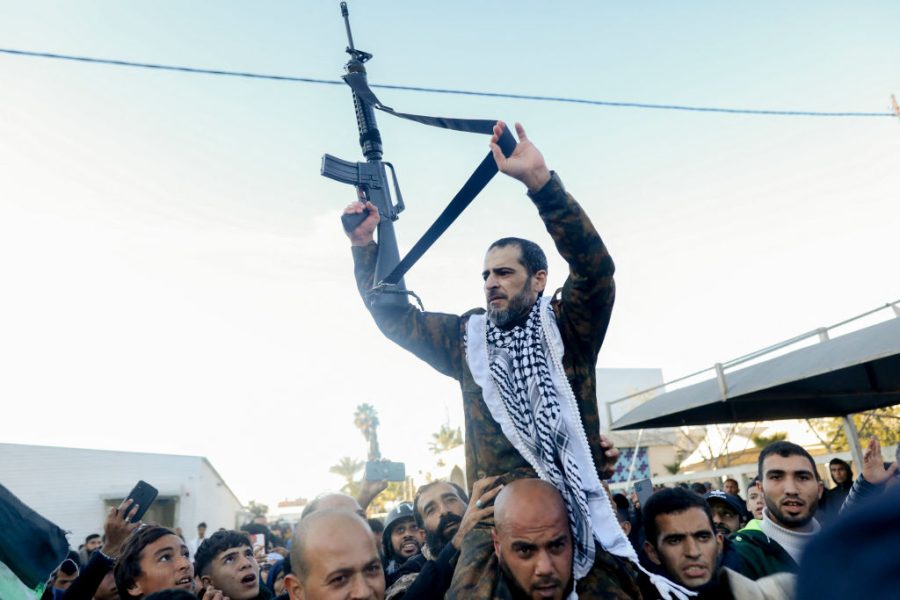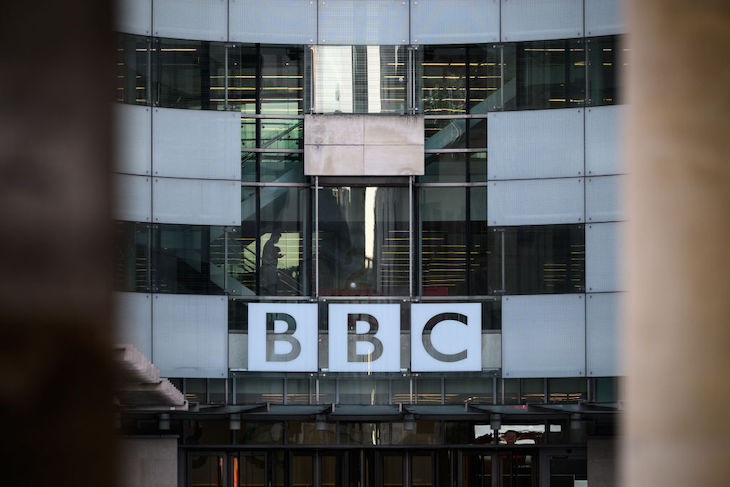Imagine waking up to the news that Michael Adebolajo and Michael Adebowale, the brutal killers of British soldier Lee Rigby, were being released from prison. Picture the outrage as the British public remembers the images of Rigby being hacked to death on a Woolwich street in broad daylight, his killers unapologetic and defiant even during their trial. Imagine, too, if Axel Rudakubana – the teenage terrorist who stabbed three young girls to death during a Taylor Swift-themed dance class – walked free, boasting about his satisfaction with the murders. These scenarios are unthinkable. Yet, in Israel, they are a grim reality.
This is a deal that ensures the cycle of bloodshed will continue
This week, with the encouragement of the world, Israel continued to release dozens of Palestinian terrorists, many of whom are guilty of atrocities that defy comprehension. Among the prisoners on the release list are 424 perpetrators of suicide bombings, shooting sprees, and stabbings – men and women responsible for the deaths of countless civilians. These are not abstract statistics; they are people like Bilal Abu Ghanem, who murdered three Israelis in a 2015 Jerusalem bus attack and injured 15 others, and Khalil Yosef Ali Jabrin, then 16 years old, who stabbed to death Ari Fuld, a 40 year old father of four, outside a shopping mall in 2018.
The profound emotional weight of this deal is embodied in the harrowing story of Tal Hartuv, with whom I spoke this week. Tal endured a brutal attack by two Palestinian terrorists armed with machetes in 2010. Left for dead, she survived by feigning death, all while witnessing the horrific murder of her friend Kristine beside her. The perpetrators of this unspeakable crime were sentenced to prison, yet Tal tells me she now confronts the agonising reality that they may soon be released as part of this exchange. ‘I’m so glad these hostages are home,’ she says, ‘but on the other hand I can also hold this raging sense of injustice.’
The initial media coverage of this deal focused disproportionately on the Palestinian minors held in Israeli prisons, with some outlets describing them as mere children deprived of their freedom. This narrative ignores the horrifying reality: many of these minors are hardened terrorists.
Of those who were imprisoned under the age of 18 and are now slated for release, 20 have committed murder or attempted murder. One of them, Shadi Juadra, was 16 when he shot an Israeli phone company technician named Amit Mantin. Juadra later confessed he went out to ‘murder a Jew’. Another, Nidal Zaid, was part of a terrorist cell that planned to kidnap Jews and take them to Palestinian Authority territories to murder them. He was involved in the abduction and murder of Yuri Gushchin in 2001 and was sentenced to life imprisonment, later reduced to 25 years due to his young age at the time of the offence: he was 17.
In Western societies, the argument for leniency toward minors is often grounded in their supposed innocence or potential for reform. Yet even in the UK, debate rages over whether killers like Rudakubana – who was 17 at the time of his crime – should receive whole-life orders. In Palestinian society, however, children are not only encouraged to participate in terrorism but are often actively groomed for it.
Through official Palestinian Authority platforms and Hamas-controlled media, children are bombarded with messages glorifying martyrdom. Television programmes feature young children declaring their desire to die as martyrs, and parents celebrate their children’s deaths as acts of heroism. In one shocking example, a mother dressed her son in an explosive belt for a staged photograph and urged him to ‘blow up the sons of Zion’. When children are raised in an environment that glorifies death and jihad, it is no wonder that they end up committing atrocities.
What makes this deal even more grotesque is the context in which it is taking place. These terrorists are not being released for good behaviour or remorse. On the contrary, their release is a ransom payment to Hamas, extracted in exchange for hostages abducted during the 7 October massacre. Many express continued pride in their murderous actions. The message this sends is chilling: terrorism pays.
This week, Salim Hajjeh was released. A senior Hamas member, he was serving 16 life sentences for his involvement in the suicide bombing on Haifa’s bus line 16 in 2011. In that attack, 15 people were murdered, and 40 were injured. Hajjeh was a member of the Hamas cell in Nablus, which was also responsible for the infamous bombings at the Sbarro restaurant and the Dolphinarium.
Bilal Abu Ghanem, set for release in the coming weeks, expressed regret during his trial – not for the lives he took, but for not killing more Jews. Meanwhile, among the women released, four of them attempted murder, one successfully, thereby shattering the illusion that female prisoners are somehow less dangerous. Even the non-murderous women are far from innocent: Ayat Mahfouz, for instance, was imprisoned for carrying and manufacturing knives and daggers, intended for use in terror attacks. The Western media’s romanticised portrayal of these women as victims ignores the severity of their crimes.
How would British citizens react if, tomorrow, the government announced the release of Ahmed Hassan, the Parsons Green bomber, as part of a deal with Isis? How would the families of their victims feel if the murderers were welcomed back as heroes in their communities, feted by political leaders, and given financial rewards for their ‘sacrifices’, all the while filmed for emotional reports on Sky News and the BBC?
This is precisely what is happening in Israel. Many of the released terrorists will return to the West Bank, the Gaza Strip, or even abroad, where they will resume their roles in terrorist organisations. Others will be celebrated as martyrs and given monthly stipends funded by foreign aid. This deal does not bring justice; it perpetuates a cycle of violence, rewarding those who use kidnapping and murder as tools of political blackmail in a way which we in Britain and the West would never accept for ourselves.
Israel faces an impossible choice: leave the hostages in Gaza to suffer or pay the ransom in the form of releasing these repulsive terrorists. For the hostages and their families, the joy of reunion is accompanied by the bitter knowledge that others will now pay the price for their freedom.
There is no justice here – only the harrowing logic of ruthless terrorism. This is not a deal that brings peace or reconciliation. It is a deal that ensures the cycle of bloodshed will continue, as the released terrorists return to their ranks, emboldened by the success of their comrades. It is a deal born of desperation, paid for in blood with the currency of injustice.








Comments